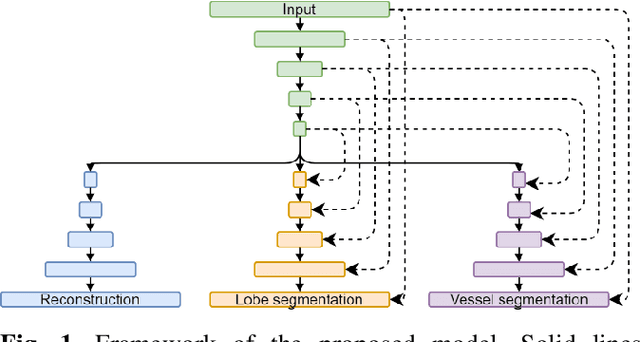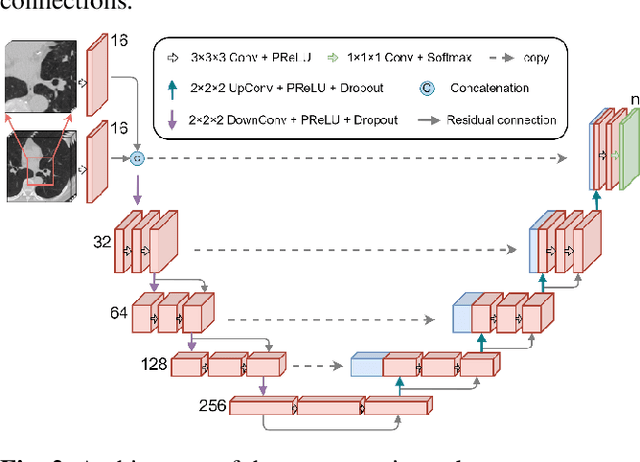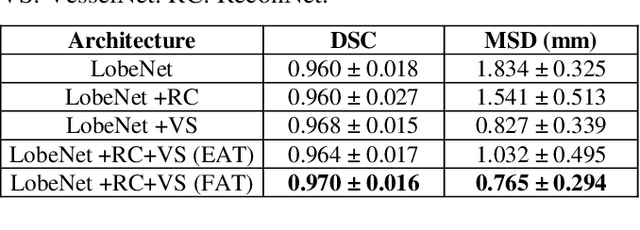I. Hernandez Giron
Multi-task Semi-supervised Learning for Pulmonary Lobe Segmentation
Apr 22, 2021



Abstract:Pulmonary lobe segmentation is an important preprocessing task for the analysis of lung diseases. Traditional methods relying on fissure detection or other anatomical features, such as the distribution of pulmonary vessels and airways, could provide reasonably accurate lobe segmentations. Deep learning based methods can outperform these traditional approaches, but require large datasets. Deep multi-task learning is expected to utilize labels of multiple different structures. However, commonly such labels are distributed over multiple datasets. In this paper, we proposed a multi-task semi-supervised model that can leverage information of multiple structures from unannotated datasets and datasets annotated with different structures. A focused alternating training strategy is presented to balance the different tasks. We evaluated the trained model on an external independent CT dataset. The results show that our model significantly outperforms single-task alternatives, improving the mean surface distance from 7.174 mm to 4.196 mm. We also demonstrated that our approach is successful for different network architectures as backbones.
 Add to Chrome
Add to Chrome Add to Firefox
Add to Firefox Add to Edge
Add to Edge